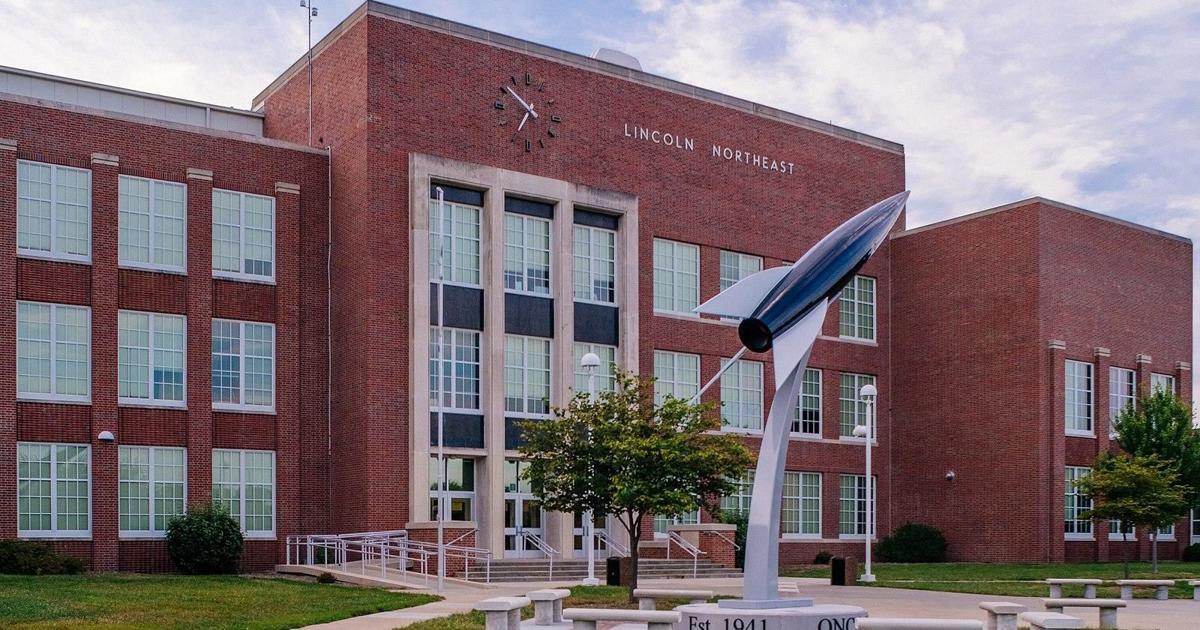
“Maddening” would better describe my own recent experience filing a request for local public records, my first in a long journalism career. Byzantine. Kafkaesque. About as sexy as fighting an insurance claim.
And yet the idea of a public records law is beautiful. It’s deeply democratic: that rank-and-file citizens have the right to peer into the inner goings-on of government because, after all, it’s our government. Our public schools, our law enforcement, our town and city halls. So those are our records we’re requesting.
The rub: Because of flaws in our state’s law, theory differs from practice. It takes just minutes to file a public records request, but as I painfully learned, to actually get a request fulfilled may require months upon months of follow-up; a nontrivial sum of money; a lawyer or two; and persistence verging on a pathological inability to let go.
My public records saga began with a mystifying misstep in the Brookline public schools.
Just after the Hamas attacks of Oct. 7, 2023, the schools superintendent sent out two messages that sparked instant backlash.
“As you are likely already aware, violence is escalating rapidly in Israel and Palestine,” began one note, sent to the entire school district community.
Though the town includes large Jewish and Israeli populations, the note neither decried the Hamas atrocities nor expressed sympathy to the many affected local families.
A separate note to staff recommended an undeniably slanted set of teaching resources. It included links to pro-Palestinian sources like Visualizing Palestine and Decolonize Palestine but no similarly pro-Israel sources to balance them, and nothing on Hamas.
In response, dozens of pained and furious messages flooded in to Superintendent Linus J. Guillory Jr., accusing him of lacking compassion and the moral leadership to teach the difference between right and wrong. “A person who can’t condemn a brutal massacre can’t be in charge of our kids’ education,” read one.
Two days later, Guillory issued a public apology. The messages “fell short of our values,” he wrote, and the resources did not meet standards for “balanced perspectives.”
”At a time of great pain in our community, we compounded that hurt through poor communication,” he wrote.
It was a prompt, powerful mea culpa, but it left a central question unanswered for some Brookline residents, including me: Guillory had taken responsibility, but who had actually written those messages and chosen those resources? And would their influence carry over elsewhere in the schools?
Seeking clues, I went to the town Web page for public records requests and asked for emails to and from the superintendent related to his Oct. 7 messaging.
Certainly, most people would not have felt compelled to file this request. But Hamas’s massacre of young concert-goers all too reminiscent of my own children had hit me especially hard, and it’s often the case that records requests stem from highly personal concerns, whether a student’s bad school experience or a company’s loss of government business. All have the right to ask.
And many do. More than 6,700 records requests have been filed with the City of Boston so far this year. The Massachusetts tracking system for appeals related to state and local public records requests already counts well over 1,300 this year alone. (The federal government has a separate system for FOIAs, Freedom of Information Act requests.)
“Every government record in Massachusetts is presumed to be public” unless a specific exemption applies, an official guide to the state’s law says.
Insert bitter laugh here, partly at myself for my naivete.
On Oct. 16, 2023, when I filed my request, I figured I was just asking for a couple of days’ worth of one official’s emails on a specific topic. Type a few terms into a search bar and done, right?
Wrong. It took more than 18 months to get that modest request fulfilled, and I still don’t have one central document (but I’ve given up).
It took enlisting pro bono lawyers; appeals to the supervisor of records, the state team that handles public records requests; countless nagging emails; two speeches and a half-dozen emails to the School Committee.
Etc. It’s all too mind-numbing to even recount.
Why is this so hard? In large part because, as former Globe Spotlight editor Walter Robinson puts it, when it comes to powerful public records laws, “Massachusetts is dead last among states.”
The state law has a tragic flaw, he and other advocates of access to public records explain: It’s nearly as toothless as a newborn baby.
Though it has been improved a bit in recent years, it continues to lack any effective means of enforcement if a public official fails to comply.
“Are there sanctions for non-compliance? There are no sanctions in the law,” according to The Reporters Committee for Freedom of the Press guide to the Massachusetts law.
In the face of bureaucratic resistance, the only real recourse is to sue, says Justin Silverman, executive director of the New England First Amendment Coalition.
“And few if any people have the time and resources to litigate these public records disputes,” he says, “so they’re left without the information they’re entitled to.”
Make no mistake, though, Silverman says: If you are entitled to information, public officials “are breaking the law if they are keeping that information secret.”
Recently, attention to the state’s public records law has largely focused on its big gaps. The governor’s office, the Legislature, and the courts are all exempt from requests, or claim to be.
My experience highlights a lower-level issue: that even those officials who are clearly subject to the existing law can delay and resist for a very long time if they choose.
Some may comply willingly; others may obstruct, fling legal gobbledygook, or, the most potent weapon of all, just do nothing.
“It’s just like health insurance companies: If they stall and deny, most of the time, the person will give up and go away,” says Mike Offner, an activist with a law degree and extensive experience with the Massachusetts public records law. “You think it’s so great that we have these laws and you can get all these records, and it turns out you can’t.”
The Brookline school district never did fulfill that 2023 records request of mine. It just … didn’t.
I had 90 days to appeal to the state for help, but I was too much of a newbie to know it. The clock ran out even as I kept sending pleasant occasional reminders to the superintendent’s office.
I refiled the request in May 2024. This time, when it was once again met with silence, I knew enough to appeal after 10 days to the supervisor of records. That office promptly ordered the town to respond.
I also spoke publicly to Brookline’s School Committee, and some members were troubled enough to try to help.
Steven Ehrenberg, a School Committee member and a graduate of Columbia Journalism School, found it impossible even to get a written response from the superintendent to the half-dozen emails he sent asking about the request.
“That was a turning point in my confidence in working with the district,” says Ehrenberg, who decided not to run for reelection this spring. “Because it made me think that if I can’t request information from the district, repeatedly, respectfully, about our compliance with the law, publicly or privately, then it really limited how I could be a productive part of governance.”
When Ehrenberg asked for an explanation from Joe Callanan, the town counsel who leads Brookline’s legal office, “it was not a fruitful conversation,” he says.
Callanan did not respond to my requests for an interview. Superintendent Guillory initially agreed, but then declined.
A spokesperson for the Massachusetts secretary of state also refused my request to speak with the supervisor of records, Manza Arthur, or with Secretary William Galvin, who oversees that office.
In July 2024, the Brookline town counsel did send over a document. Only one, but still — a document!
Sadly, it was nothing but an email saying a draft of a Google Doc for the Oct. 7 messaging had been created. All names were blacked out, without the justifications for those redactions that are required by law. Also, I knew the superintendent had received many emails responding to his messages; our local Brookline News had even covered them. Where were they?
Stymied, I finally sought legal help through the Anti-Defamation League’s project on antisemitism in K-12 schools, and it provided two top-notch pro bono attorneys. In mid-December, I wrote to the town counsel conveying, for the first time in my life, the ultimate attention-grabber: “You’ll be hearing next from my lawyers.”
Soon came the count — the town counsel’s office had identified 368 potentially relevant emails — and the price tag: they estimated that at least 39 hours of staff time would be needed to process the emails, at a cost of $926.25.
It could have been worse. Taunton recently told the ACLU of Massachusetts it would need to pony up $1.8 million for some police records, MASSterlist reported.
Still, what to do? I’d never imagined the process would be so elaborate. The price was high, but I had come so far …
Finally, I paid and then created a GoFundMe page that began: “A donation to this fundraiser conveys the message: ‘We do not want our school administration or Town Counsel to stonewall reasonable public records requests.’”
On a Sunday evening, I put the fundraiser link out to a couple of online Brookline parent groups, asking for $10 donations. Within three hours, I had all my money back. (Note to local politicians: Public sentiment seems to favor open government.)
In April and May of this year, the town counsel sent over four batches of repetitive, sometimes irrelevant emails, sprinkled with a few gems. Several indicated that two senior district staffers had led the drafting of the messages: a senior director of teaching and learning, and the director of the Office of Educational Equity.
Nothing in the documents appeared particularly embarrassing. No gaffes, no slurs, no smoking guns.
Of course, I had no way of knowing if all the emails had been provided. But if the harvested emails would be this innocuous, why take everyone’s time like this? And surely, there has to be a better way?
State Representative Antonio Cabral, a longtime champion of improving Massachusetts public records laws, is proposing a reform that would create a quasi-public agency like the state Ethics Commission to handle public records requests and represent citizens making them. A committee hearing on Cabral’s measure is expected next month.
“It would be radically different than what we do now but in my opinion would really put the public first,” he says.
Silverman, from the New England First Amendment Coalition, says “there are a lot of possible solutions” to the state law’s weaknesses. Fundamentally, “we need to change this culture of secrecy in the state, to one of openness, transparency, and accountability,” he says.
Cabral, who was first elected in 1990 and chairs the legislature’s Committee on State Administration and Regulatory Oversight, takes a long-term perspective: that already, the state’s public records law is better than it was a decade ago, and “these things take time.”
They sure do. During the many months that my request moldered, the Brookline school district went through a budget crunch and some turmoil.
The town cut the Office of Educational Equity, including the director who’d apparently helped on the emails. The two senior directors of teaching and learning on the email chain moved on. Superintendent Guillory himself resigned as well, as of June 30.
So now all the main players involved in that Oct. 7 message misstep are no longer in the school system. The concern that initially prompted my request is moot.
The upside, I suppose, is that thanks to the disclosed emails, it is clear that it’s moot.
Cabral advises not to be put off by this cautionary tale. Rather, know what to expect with a public records request: “Just know that the outcome is very uncertain,” he says. “And you’re going to need a lot of patience.”
Still, he has one encouraging word for anyone who considers filing a request: “File!”
Box:
IF YOU FILE
Tips for filing a public records request
1. Look online first. Many public records will already be posted, saving you a potential battle. An AI tool such as ChatGPT or Claude may be able to help with the search.
2. It’s worth a try to show up in person at a government office and ask a clerk for the records you seek, in hopes of avoiding a formal request and the involvement of legal staff. If you must file a request, try to speak in advance with the officials who will handle it, using a “We come in peace” tone.
3. Be as specific and limited as possible in your request.
4. If you don’t get a response within 10 business days, you can file an appeal to the supervisor of records at pre@sec.state.ma.us.
5. Do not be surprised if the process drags on for months.
6. If the price you’re quoted for a public records request is too high, you can appeal it to the supervisor of records.
7. If the document is redacted so that key information is blacked out, each redaction must have a specified reason — an exemption that applies — and if not, you can appeal it.
8. If you resort to bringing suit, one relatively recent change in the law says that if you win, the loser may have to pay your legal fees.



